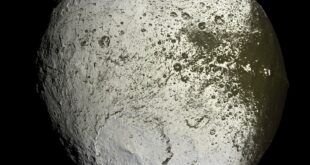Captivating Discoveries: Top 10 Breakthroughs in Space Technology
1. Interplanetary Internet: Enabling Rapid Communication
Imagine a world where astronauts and rovers on different planets can instantaneously communicate with each other. Thanks to the development of the interplanetary internet, this idea has transitioned from science fiction to reality. The interplanetary internet allows for faster and more reliable data transfer between different celestial bodies, fostering better collaboration and information exchange between humans and rovers exploring the universe together.
2. SpaceX’s Reusable Rockets: Revolutionizing Space Travel
SpaceX has been at the forefront of revolutionizing space travel through their innovative reusable rocket technology. Unlike traditional rockets that are discarded after a single use, SpaceX’s Falcon 9 rockets are designed to be reusable, significantly reducing the cost of launching objects into space. This breakthrough not only marks a major step towards making space travel more accessible but also promotes sustainability in the aerospace industry.
3. Helium-3: A Potential Fuel for Fusion Energy
Trapped in lunar soil and depleted on Earth, helium-3 is an isotope with immense potential as a clean and efficient energy source. Scientists believe that harnessing helium-3, which is abundant in the moon’s surface, could lead to advancements in nuclear fusion energy and a viable solution to Earth’s energy crisis. The exploration and extraction of this incredibly rare substance undoubtedly redefine our possibilities for achieving sustainable energy solutions.
4. Mars Colonization: Expanding Human Frontier
The ongoing research and development around Mars colonization have fascinated space enthusiasts worldwide. Establishing human presence on the Red Planet not only brings us one step closer to becoming an interplanetary species but also holds the potential to unlock invaluable scientific knowledge about our own planet’s evolution and future. Innovative concepts such as terraforming Mars or building sustainable habitats push the boundaries of human imagination and inspire the next generation of explorers.
5. Quantum Communication: Unbreakable Space-based Encryption
With the ever-increasing need for secure communication in the digital age, scientists turned towards quantum-based technologies. Quantum communication relies on the strange properties of quantum physics to enable unbreakable encryption. Space-based quantum communication offers unparalleled security and has the potential to protect crucial information during space exploration missions, bringing a new level of cybersecurity to the final frontier.
6. Exoplanet Precision Surveys: Searching for Habitable Worlds
The discovery of exoplanets – planets outside our solar system – has shown us the vastness and diversity of the universe. With the advancements in space technologies, scientists can now conduct precision surveys to identify exoplanets with conditions suitable for life as we know it. These breakthroughs provide fascinating insights into the possibilities of extraterrestrial life and the potential for future human colonization beyond our solar system.
7. Asteroid Mining: Harvesting Resources in Space
Asteroid mining has emerged as a promising avenue for accessing valuable resources beyond Earth. With an abundance of precious metals and water, asteroids hold the potential to become the supply stations supporting future space exploration and colonization efforts. Developing the necessary technologies for resource extraction from these celestial bodies offers new economic opportunities and reduces our reliance on the finite resources available on our home planet.
8. Artificial Intelligence: Enhancing Space Exploration
The implementation of artificial intelligence (AI) in space technologies has opened up new frontiers in exploration and research. AI-powered systems onboard spacecraft and rovers can analyze vast amounts of data, make real-time decisions, and adapt to changing circumstances. This technological marvel enhances the efficiency and autonomy of space missions, enabling us to delve deeper into the mysteries of the universe.
9. International Space Station: A Shared Orbital Laboratory
The International Space Station (ISS) is not only a symbol of international collaboration but also an incredible feat of engineering and exploration. As a shared orbital laboratory, the ISS serves as a platform for scientific research and technological experiments that help us better understand life in microgravity, develop innovative solutions for long-term space travel, and forge stronger bonds between nations.
10. LightSail: Revolutionary Solar Sail Technology
Solar sail technology, as demonstrated by projects like The Planetary Society’s LightSail, offers a revolutionary means of propulsion in space. By harnessing the pressure of sunlight, solar sail-equipped spacecraft can travel vast distances without using conventional fuels, thus extending the range and possibilities of space exploration. This breakthrough provides an environmentally friendly and sustainable method of propulsion, representing an exciting leap forward for future space missions.
 Mind Uncharted Explore. Discover. Learn.
Mind Uncharted Explore. Discover. Learn.



